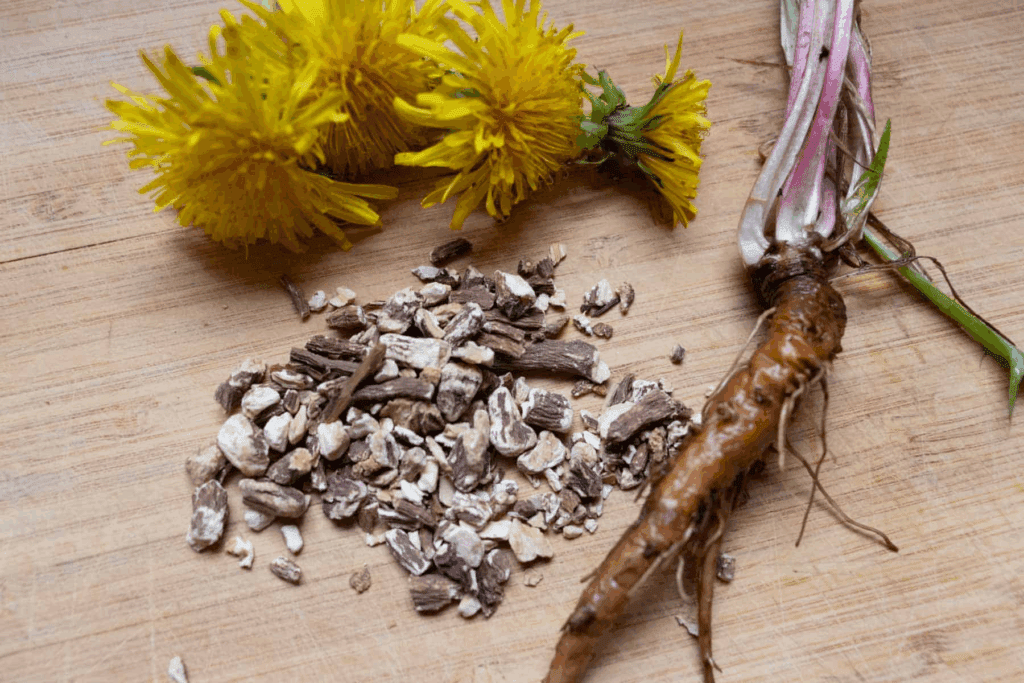Have you ever noticed those bright yellow dandelions popping up in your yard and wondered if they’re more than just a weed? Dandelion root, a staple in traditional medicine for centuries, is gaining attention for its potential to support health and wellness. While it’s not a substitute for medical treatments like chemotherapy, this humble plant offers a range of benefits that might complement a healthy lifestyle. Let’s dive into the science and history behind dandelion root and discover how it can play a supporting role in your wellness journey.
What Is Dandelion Root?
Dandelion root comes from the Taraxacum officinale plant, a common weed found in backyards and fields across America. While the bright yellow flowers are eye-catching, it’s the root that holds the most promise for health. For centuries, cultures worldwide have used dandelion root in teas, tinctures, and powders to support digestion, liver health, and more. Today, researchers are exploring its potential benefits, making it a popular choice for those seeking natural remedies.

Dandelion root is rich in vitamins, minerals, and antioxidants, including vitamin C, potassium, and inulin—a type of fiber that supports gut health. Its versatility and accessibility make it an appealing option for health-conscious individuals looking to incorporate natural remedies into their routines.
The Historical Use of Dandelion Root in Traditional Medicine
Dandelion root has a long history in herbal medicine. Native American tribes used it to soothe digestive issues and support kidney function, while traditional Chinese medicine employed it to promote liver health. In Europe, dandelion root was a go-to remedy for everything from bloating to skin concerns.
These traditional uses weren’t just folklore. Modern science is beginning to uncover why dandelion root was so valued. For example, a 2015 study published in the Journal of Ethnopharmacology noted that dandelion root contains compounds like sesquiterpene lactones, which may have anti-inflammatory and antioxidant properties. While more research is needed, these findings suggest that dandelion root’s historical uses may have a scientific basis.
Potential Health Benefits of Dandelion Root
Dandelion root’s potential benefits are wide-ranging, though it’s important to approach them with realistic expectations. Here are some of the most promising ways dandelion root may support health and wellness:
- Supports Digestive Health: Dandelion root is a natural source of inulin, a prebiotic fiber that feeds beneficial gut bacteria. Research from the International Journal of Molecular Sciences (2017) suggests that inulin may improve digestion and reduce bloating.
- Promotes Liver Health: Animal studies, like one published in Food and Chemical Toxicology (2010), indicate that dandelion root may help protect the liver from oxidative stress. This could make it a supportive ally for liver detoxification processes.
- May Help Manage Blood Sugar: A 2016 study in The Review of Diabetic Studies found that dandelion root extract improved insulin sensitivity in diabetic rats, hinting at potential benefits for blood sugar regulation.
- Rich in Antioxidants: Dandelion root contains polyphenols, which combat free radicals that can damage cells. A 2011 study in Molecules highlighted its antioxidant capacity, which may support overall wellness.
- May Support Kidney Function: Dandelion root is a natural diuretic, meaning it may help the body eliminate excess water. This property was noted in a 2009 study in Journal of Alternative and Complementary Medicine, which explored its traditional use for kidney health.
While these benefits are promising, human studies are limited, and dandelion root should not replace prescribed treatments. Always consult your doctor before adding it to your routine.
How to Use Dandelion Root Safely

Incorporating dandelion root into your wellness routine is simple, but safety comes first. Here are some practical ways to use it and tips to keep in mind:
- Dandelion Root Tea: Steep 1–2 teaspoons of dried dandelion root in hot water for 10 minutes. This is a gentle way to enjoy its benefits, with a mild, earthy flavor.
- Capsules or Tinctures: Available at health food stores, these offer a convenient option. Follow the dosage instructions on the label.
- Powder: Add dandelion root powder to smoothies or soups for a nutrient boost.
- Fresh Dandelion Root: If foraging, ensure the plants are from pesticide-free areas. Wash thoroughly before use.
Safety Tips:
- Start with small amounts to see how your body reacts.
- Avoid dandelion root if you’re allergic to ragweed or related plants, as it may trigger reactions.
- Check with your doctor if you’re pregnant, breastfeeding, or taking medications like diuretics or blood thinners, as dandelion root may interact.
Dandelion Root in Your Daily Routine
Ready to give dandelion root a try? Here’s a simple plan to incorporate it into your week:
- Morning Tea Ritual: Start your day with a cup of dandelion root tea. Pair it with a healthy breakfast to support digestion.
- Smoothie Boost: Blend a teaspoon of dandelion root powder into a smoothie with berries, spinach, and almond milk for an antioxidant-packed drink.
- Evening Wind-Down: Sip dandelion root tea in the evening to promote relaxation and support liver health.
- Stay Consistent: Use dandelion root 3–4 times a week to gauge its effects on your energy and digestion.
Share this plan with a friend who loves natural remedies! Consistency is key, but listen to your body and adjust as needed.

Myths and Misconceptions About Dandelion Root
With the rise of natural remedies, myths about dandelion root abound. Let’s clear up a few:
- Myth: Dandelion root can cure cancer.
Truth: While some lab studies, like one in Oncology Reports (2011), suggest dandelion root may inhibit cancer cell growth in test tubes, there’s no evidence it can treat or cure cancer in humans. It’s a supportive remedy, not a replacement for medical treatment. - Myth: Dandelion root is a magic weight-loss solution.
Truth: Its diuretic properties may reduce water weight temporarily, but it’s not a sustainable weight-loss tool. Focus on a balanced diet and exercise instead. - Myth: Dandelion root is unsafe for everyone.
Truth: When used appropriately, it’s generally safe for most people. However, those with specific health conditions or allergies should consult a doctor.
By separating fact from fiction, you can make informed choices about using dandelion root.

Why Dandelion Root Is Worth Exploring
Dandelion root’s combination of historical use, emerging science, and accessibility makes it a compelling option for health-conscious Americans. Whether you’re looking to support digestion, boost your antioxidant intake, or simply try something new, this natural remedy offers a gentle way to enhance your wellness routine. Plus, its affordability—dandelion root tea costs just a few dollars—makes it an accessible choice for many.
Have a favorite way to use dandelion root? Drop it in the comments below! Your tip might inspire someone else to explore this versatile plant.



